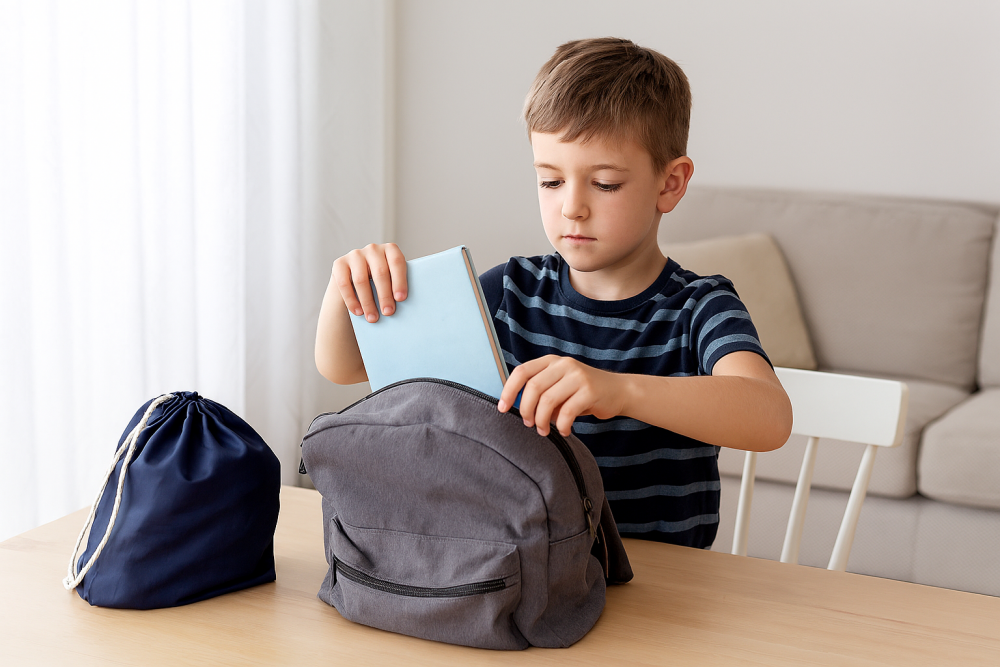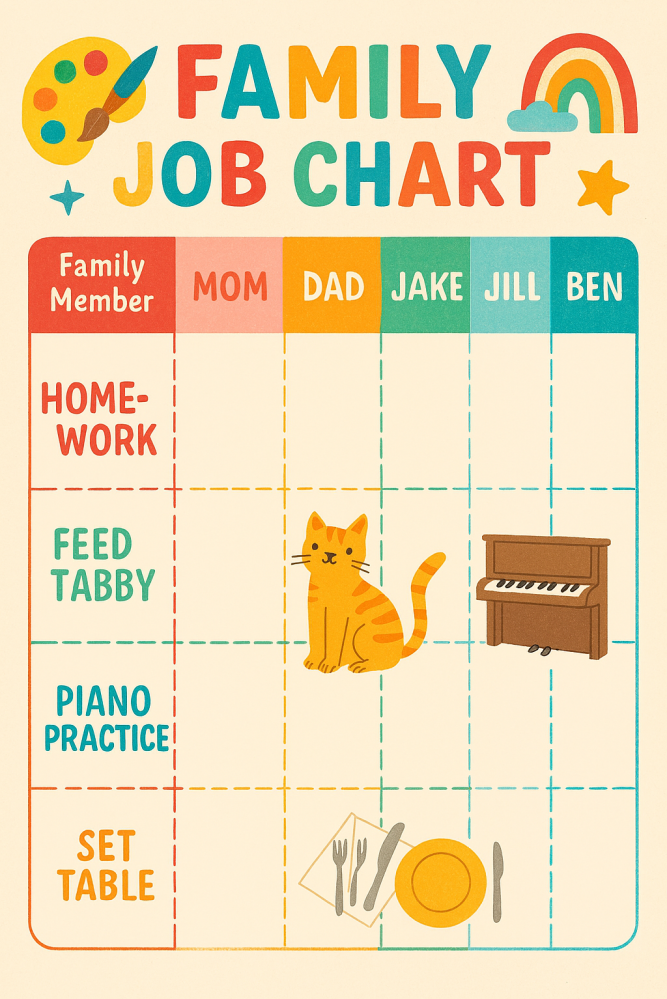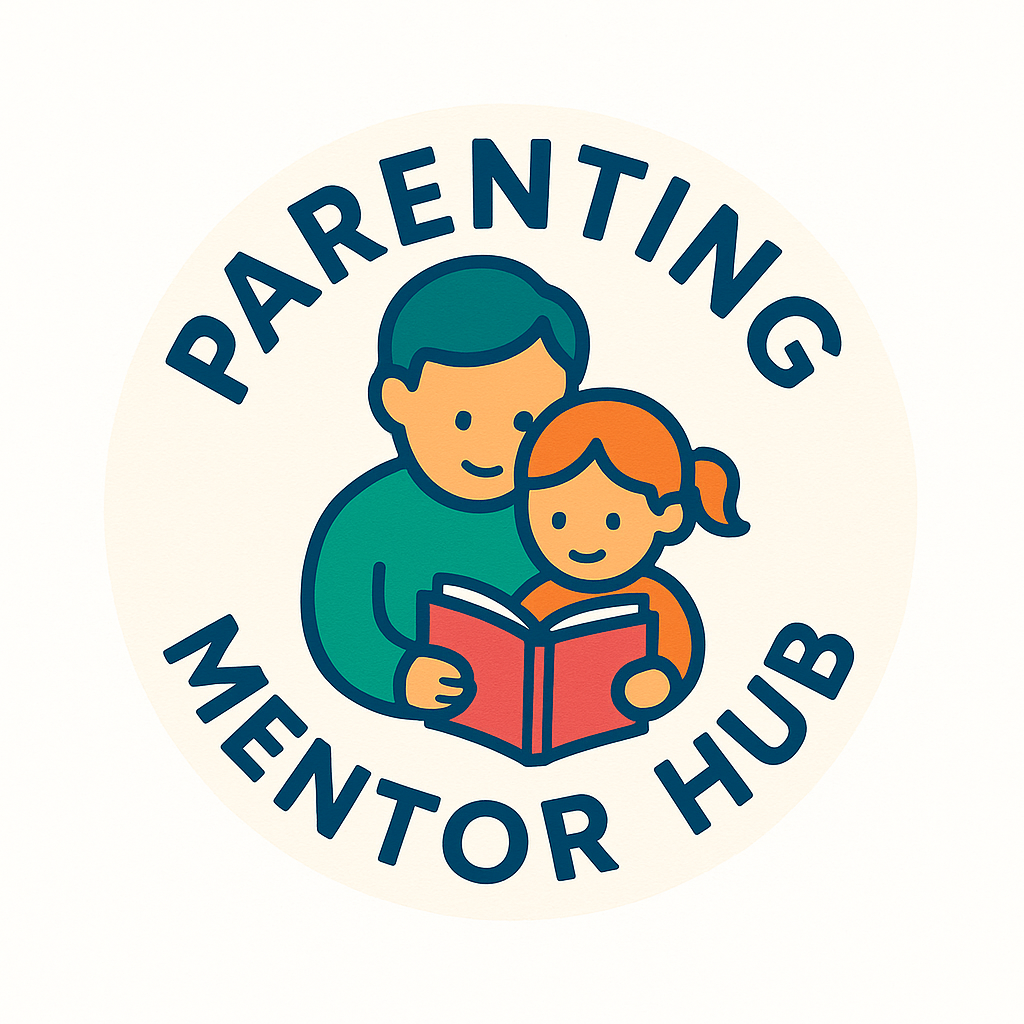
Helping children grow a sense of responsibility is one of the most important parts of parenting. Good habits developed early can shape how children approach tasks, relationships, and work as adults. Responsibility doesn’t always come naturally, but with encouragement and practice it can be nurtured at home through everyday routines.
What Responsibility Means for Children
Responsibility goes far beyond chores. It’s about being accountable for actions, taking care of belongings, keeping promises, and thinking about the needs of others. Children develop this step by step, through manageable opportunities where they can practise dependability and see the results of their choices.
Family, school, and friendships all play a role, but the daily expectations set at home make the biggest difference. When children are encouraged to help out, experience natural consequences, and watch adults take their own responsibilities seriously, lessons sink in more deeply. Consistency matters. When children know what’s expected and see responsible behaviour every day, they are far more likely to adopt that behaviour themselves.
Practical Ways to Encourage Responsibility
Children respond well when tasks are clear, age-appropriate, and part of family life. Here are a few simple ways to encourage responsibility:
- Caring for a pet: Looking after a small pet such as a hamster or fish teaches daily commitment. Feeding, cleaning, and observing the animal’s needs helps children understand consistency and care.
- Tending a houseplant: A personal plant to water and care for teaches routine and attention to detail. If it wilts when neglected, the natural consequence reinforces why sticking to tasks matters.
- Getting ready for school: Packing their own bag in the evening and laying out clothes for the next morning builds independence and reduces stress at the start of the day.
- Helping with family tasks: Simple jobs such as setting the table, sorting laundry, or putting away groceries give children a sense of pride. These can grow into more complex responsibilities over time.
- Caring for shared spaces: Encouraging children to tidy communal rooms shows that everyone contributes, and keeping order isn’t just “the grown-ups’ job.”
- Managing schoolwork: Using a homework checklist or tracking assignments builds ownership of academic responsibilities and supports time management.

Creating a Supportive Environment
Children are more likely to embrace responsibility in an environment where expectations are clear and consistent. Job charts, visible family schedules, or simple routines provide structure and security.
It helps to avoid nagging or stepping in too quickly. Encouragement, praise for effort, and calm discussion about what could be done differently make tasks feel achievable rather than burdensome. If something is forgotten, natural consequences (like missing a planned activity if jobs aren’t finished) often teach the lesson better than criticism.
Encouraging Problem-Solving and Independence
Responsibility grows when children are trusted to make decisions and experience outcomes. Asking questions like “What do you think would fix this?” helps them learn to problem-solve instead of relying on adults to step in.
Allowing children to have a say – choosing a family meal, helping plan a trip, or suggesting films they’d like to watch – also builds confidence. Even small choices, when respected, show children that their contributions matter.
Children’s Books That Inspire Responsibility
Stories are a gentle way to spark conversations about responsibility. Some lovely options include:
- What If Everybody Did That? by Ellen Javernick – showing how small actions can make a big difference.
- Lily’s Purple Plastic Purse by Kevin Henkes – exploring mistakes, apologies, and making better choices.
- The Berenstain Bears and the Trouble with Chores by Stan and Jan Berenstain – highlighting teamwork and shared responsibilities.
Parenting Books with Practical Guidance
For parents who’d like to dig deeper, these books offer thoughtful approaches to raising responsible children:
- How to Raise an Adult by Julie Lythcott-Haims – on stepping back from over-parenting and encouraging independence.
- Parenting with Love and Logic by Charles Fay and Foster Cline – explaining how natural consequences can teach lessons without battles.
- No Drama Discipline by Daniel J. Siegel and Tina Payne Bryson – linking emotional regulation with responsibility and dependability.
Overcoming Common Challenges
It’s natural for children to rely on parents to do things for them – that’s how they’ve grown up. Babies depend on caregivers for everything. But it’s the parents’ responsibility to gradually step back and let children try things themselves. To begin with, you can simply talk through what you are doing:
- “Let’s look at your timetable to see what you need for school tomorrow.”
- “I’m putting out your clean school uniform so you can get dressed straight away in the morning.”
- “We’ll leave ten minutes early, just in case there’s traffic. We don’t want to be late.”
This helps them to learn to think ahead. They won’t arrive at school saying, “Sorry I’m late, Miss, there was a lot of traffic.”
I dislike excuses and the habit of blaming others or circumstances for our own shortcomings. That’s why I feel strongly that children should be taught to take responsibility for their actions from an early age. Of course, they’ll need help and encouragement along the way. They may resist at first, especially if they’re used to everything being done for them. They may also forget what they’re meant to do if they’re busy with something more fun. Often, a gentle reminder is all that’s needed.
(And let’s be honest – even at my very advanced age I sometimes need a reminder. As I write this blog, my dog is nudging me: “Hey, it’s walkies time – have you forgotten?”)
Breaking jobs into smaller steps, using gentle reminders, and calmly following through with consequences are far more effective than nagging or scolding.
Children also learn by watching. Narrating your own responsibilities – “I’ll finish the vacuuming before I sit down for a cup of tea” – helps them see how adults manage commitments.
Preparing for the Future
Ultimately, responsibility is about preparing children for life. Skills like meeting deadlines, looking after belongings, and considering others’ needs lay the foundation for adulthood.
By setting clear expectations, providing chances to practise, and offering patient support, parents give children the tools to grow into dependable, confident individuals who feel proud of their contributions.
